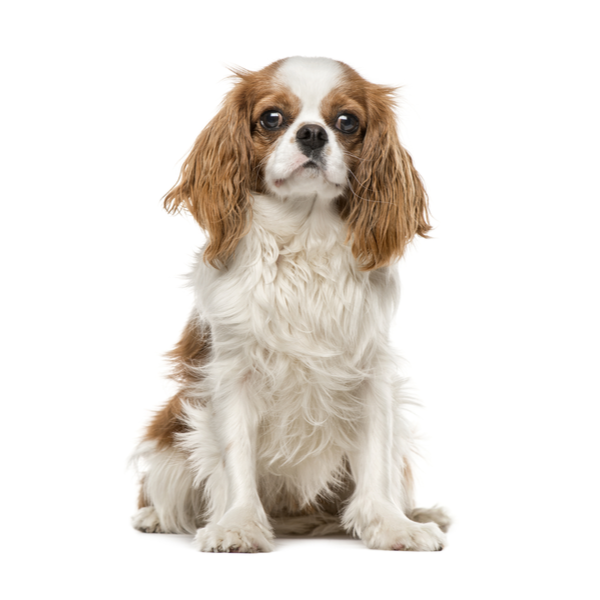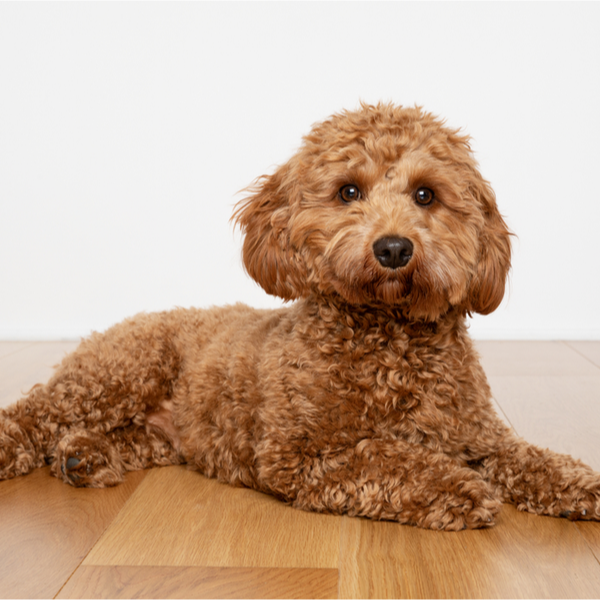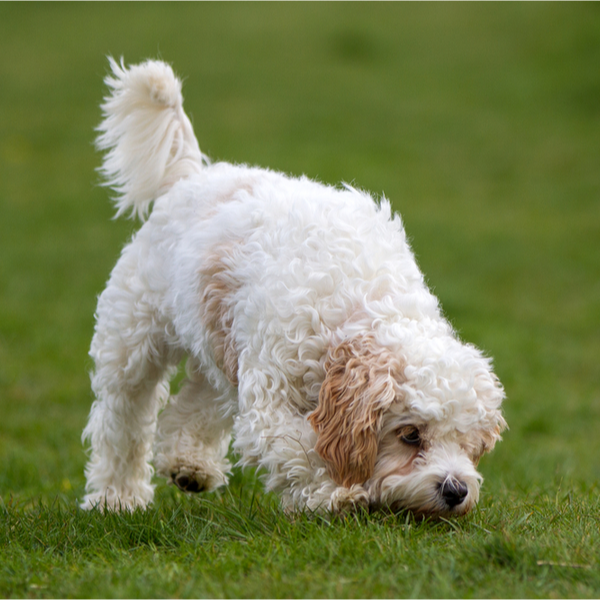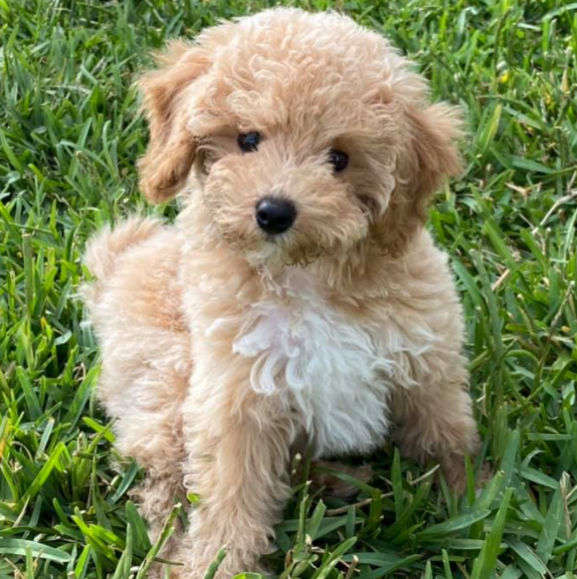
CAVALIER KING CHARLES SPANIEL PUPPIES FOR SALE
Friendly. Affectionate.
If you are looking for a loyal and loving companion, the Cavalier King Charles Spaniel is the puppy for you. Our facility has purebred Cavalier Spaniel puppies for sale that encompass all the best qualities that this breed has to offer. They come from a line of hunters but are now more broadly held as companion dogs. They are often called the "comforter spaniels” because of their companionate nature. The Cavalier is friendly, affectionate, people-oriented, and good with children and other dogs of any size.
They’ll need a lot of human social interaction and won’t want to be regularly left alone. If you need a friendly pup to have by your side, this is the one! As the responsible breeders in town, we focus on the well-being and health of our pups to ensure that they get proper vet care and early socialization. Explore our puppies today to make them a part of your life. Visit our platform to experience the true love our puppies have to offer!

Temperament
This breed is known to chase things and not be very “street smart,” so it is important to keep them on a leash.
Due to their gentle and friendly nature, they are not an ideal guard dog. Our miniature Cavalier King Spaniel pups love to play with other puppies and people. If you have a moderately active lifestyle, have kids or other pets and are looking for unconditional love from a furry friend, then this is a great breed for you!

Appearance
Feathering can grow on their ears, feet, legs, and tail in adulthood. This Spaniel has four different colors:
- Blenheim (white coat with rich chestnut markings)
- Black and Tan (black coat with tan markings)
- Ruby (completely chestnut coat)
- Tricolor (black and white coat with tan markings).
This breed is relatively small; their average height is between 12 to 13 inches with a proportionate weight between 10 to 18 pounds.

Exercise
The Cavalier loves to roam and explore, so watch out for birds and small animals! Even though the Cavalier should be leashed in busy areas, they respond well to gentle training.
We recommend giving them about 30 minutes of activity per day, averaging about 6 miles of walking per week.
They can live equally well in the city or the country, and do well as part of a pack of two or more dogs.
History of Cavalier King Charles Spaniel Puppy
Let us find out everything about the captivating journey of the Cavalier King Charles Spaniel, from its noble beginnings in England to its cherished status being a beloved family companion.
• Origin
The Cavalier King Charles Spaniel boasts a rich history as the regal, as its name would indicate. The lineage of the breed predates even the reign of King Charles II, after whom it was named after its origin in England. The feature evolved out of crossbreeding with flatter-faced breeds, with the modern Cavalier sporting a flatter muzzle compared to its ancestors.
In North America, the Cavalier King Charles Spaniel was initially referred to as the English Toy Spaniel. The breed's journey in England saw the formation of the Toy Spaniel Club in 1886, which attempted to classify them based on coat colors: King Charles, Prince Charles, Blenheim, and Red. However, this categorization proved unsuccessful, leading to the adoption of the name Toy Spaniel. Nevertheless, King Edward VII objected, reinstating the breed's original title as the King Charles Spaniel.
• Introduction in the United States
The breed's introduction to the United States saw its first recorded presence in 1956, with formal recognition by the American Kennel Club finally granted in 1995. Today, the Cavalier King Charles Spaniel continues to enchant dog lovers worldwide with its endearing personality, making it a cherished companion for families everywhere.
Health of Cavalier King Charles Spaniel Puppies
Caring for your Cavalier King Charles Spaniel puppy involves understanding their unique health needs. While these dogs are generally healthy, they are predisposed to certain health conditions that potential owners should be aware of.
Major Health Concerns
- Hip Dysplasia: This genetic condition affects the hip joints, causing discomfort and mobility issues.
- Mitral Valve Disease: Common among Cavalier King Charles Spaniels, this condition affects the heart valves, leading to heart murmurs and, in severe cases, heart failure.
- Thrombocytopenia: This disorder results in low platelet levels, which can lead to excessive bleeding and bruising.
- Syringomyelia: A neurological condition characterized by fluid-filled cavities in the spinal cord, leading to pain and neurological deficits.
Minor Health Concerns
- Keratoconjunctivitis Sicca: Also known as dry eye syndrome, this condition results in insufficient tear production, leading to discomfort and potential eye infections.
Caring for Your Cavalier King Charles Spaniel Puppies
Caring for your Cavalier King Charles Spaniel puppy involves regular grooming and attention to its unique needs. While this breed is not hypoallergenic and sheds moderately, its beautiful coat requires specific care to maintain its health and appearance.
Grooming Needs
- Brushing: The Cavalier's coat should be brushed every other day using a comb or firm bristle brush to prevent feather matting and tangling. Trimming is generally unnecessary but may be required for feathering on the ears and hair between footpads.
- Ear Care: The breed's long, furry ears are prone to trapping moisture, making them susceptible to bacterial and yeast infections. Regular cleaning and inspection are crucial to prevent ear issues.
- Dental Care: Your Cavalier's teeth should be brushed daily to maintain oral health and prevent dental problems.
Training Needs
While Cavalier King Charles Spaniels can adapt well to apartment living, they thrive with access to a fenced yard for playtime after walks. Regular exercise is essential to keep them mentally and physically stimulated. At Happytail Puppies, we also offer personalized training packages to help dog owners train their furry friends in the best way ever!
FREQUENTLY ASKED QUESTIONS ABOUT CAVALIER KING CHARLES SPANIELS
How Big Do Cavalier King Charles Spaniels Get?
Cavalier King Charles Spaniels are small dogs, usually weighing 13 to 18 pounds and standing 12 to 13 inches tall at the shoulder. Despite their compact size, they possess a sturdy and elegant build, making them a popular choice for both urban and rural environments.
Are Cavalier King Charles Spaniel Puppies Good With Children And Other Pets?
Yes, Cavalier King Charles Spaniel puppies are great with children and other pets. Their gentle, affectionate nature makes them wonderful companions. Known for their friendly and sociable demeanor, they get along well with kids and other animals, making them ideal family pets.
Do Cavalier King Charles Spaniel Puppies Shed a Lot?
Cavalier King Charles Spaniel puppies shed moderately. Regular grooming, including brushing a few times a week, helps manage and reduce shedding. Their silky coats can mat, so consistent care is essential to keep their fur healthy and looking good.
How Long Do Cavalier King Charles Spaniels Live?
Cavalier King Charles Spaniels usually live between 12 to 15 years. Factors like genetics, diet, and overall care can influence their lifespan. Regular veterinary check-ups and a healthy lifestyle help ensure they live a long, happy life.
Are Cavalier King Charles Spaniel Puppies Easy to Train?
Indeed, training Cavalier King Charles Spaniel puppies is typically straightforward. They exhibit intelligence and eagerness to please and respond favorably to positive reinforcement methods. Starting consistent training early enables them to grasp commands and good behavior swiftly, fostering their development into well-behaved companions.




















